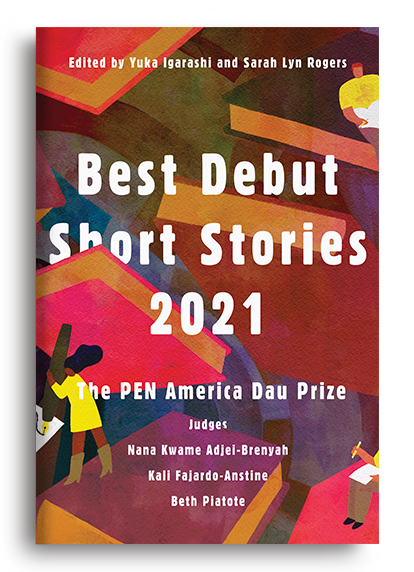2022 publications, an end-of-year roundup
/Watching the end-of-year lists roll in from authors I admire, on the one hand, I feel like I didn’t publish much this year: a few poems, a book review. But it was gratifying to see so many books I had a hand in finally enter the world as beautiful, tangible objects meeting a brand new audience of readers. It’s also been a year of beginnings. I launched a newsletter mid-year, and started a business. I think it’s easy to feel like things we can make happen for ourselves “don’t count” or matter less, but lately I’ve been thinking of lighthouses, how they send out a glow that helps people orient themselves and find the glow’s source.
I’m grateful to the online journals that published my work this year, and to the amazing authors whose work I had the pleasure of editing, and/or who I had the honor of supporting in-house at Soft Skull and Catapult.
High-Risk Homosexual by Edgar Gomez, published 1/11/22. This hilarious, beautiful memoir on fighting machismo and finding joy in queer spaces was reviewed in the New York Times, Los Angeles Review of Books, Lambda Literary, and On the Seawall, with other press at Entertainment Weekly, Vogue, TODAY, NBC News, the Los Angeles Times, and Oprah Daily,. And it’s sweeping the end-of-the-year best-of lists at Goodreads, HipLatina, Buzzfeed, and elsewhere.
I got to talk about High-Risk Homosexual at Publishers Weekly on 1/28/22, celebrating Edgar and their book being selected as an American Bookseller’s Association “Indies Introduce” title.
Path of Totality by Niina Pollari, published 2/8/22. This poetry collection, on the sudden and devastating loss of a child, is incredible. In a starred review, Publishers Weekly said “Pollari writes with straightforward, heartbreaking clarity. These poems are unflinching and powerful.” The New York Times selected Path of Totality as a best poetry book of the year.
MONARCH by Candice Wuehle, published 3/29/22. This novel, at the intersection of trauma psychology, Y2K aesthetic, and occult academia, received rave reviews at NPR (and was named an NPR best book of the year), ZYZZYVA, Chicago Review of Books, and the Wall Street Journal, with other press at NYLON, CrimeReads, Cleveland Review of Books, Luna Luna Mag, and Spin. MONARCH is also a contender in the 2023 Tournament of Books!
The Red Zone by Chloe Caldwell, published 4/19/22. This candid, funny, searingly honest memoir on PMDD was well received in reviews at the Washington Post, The Rumpus, Vol. 1 Brooklyn, and Full Stop, with other press at AutoStraddle, the Cut, Electric Literature, BBC, and Thinx, and more.
Two of my poems— “APPLICANT MUST HAVE” and “LOCAL BEAST, KIND OF A LITTLE BITCH, ACTUALLY” were published at HAD on 5/1/22.
I launched this newsletter, Curiosity & Ritual newsletter, on the summer solstice, 6/21/22 :)
Death by Landscape by Elvia Wilk, published 7/19/22. This essay collection on plants, fiction, journalism, boundary-blurring, and the anthropocene was reviewed (and starred!) at Publishers Weekly, the New York Times, The Nation, and The Atlantic, with other press at The Paris Review, n+1, LitHub, CRAFT, The Creative Independent, and BOMB.
Normal Distance by Elisa Gabbert, published 9/13/22. This poetry collection on paradoxes and the tragicomedy of needing always to contend with time was reviewed at Publishers Weekly, Ploughshares, and Poetry Foundation, with other press at New York Review of Books, The Atlantic, LitHub, Chicago Review of Books, and The Slowdown with Ada Limón.
Best Debut Short Stories 2022: The PEN America Dau Prize, edited by Yuka Igarashi and me, with winning stories selected by judges Sabrina Orah Mark, Emily Nemens, and Deesha Philyaw, published 9/20/22. Catapult published a roundtable interview with the judges and PEN America interviewed all twelve winning writers. Other press at Debutiful, Book Riot, and LitHub. An excerpt of the book—Yuka’s & my co-written intro—ran at Hobart.
My poem, “I Could Signal Dominance in Email Correspondence as Trained But the Concept Is Offensive and I’m Baby” was published at Hobart on 9/27/22, with many thanks to guest editor Taylor Byas.
After I dispatched my 9/21 newsletter, my beautiful friend Jeff Hinshaw invited me to record myself reading it for their podcast, Cosmic Cousins. The episode aired on 9/25/22.
The Tiger and the Cage by Emma Bolden, published 10/18/22. This softly fierce memoir on endometriosis and the misogyny of modern medicine received great reviews at Publishers Weekly, Kirkus, and LitHub, with other press at Shondaland, Motherly, Poets & Writers, BuzzFeed, Catapult, Electric Literature, Hazlitt, and Salon.
Annnd after ten years of freelance editing around whatever else I was doing, I officially launched my manuscript-consultation business as an LLC on 10/31/22, a nice Halloween birthday.
At the tail end of 2022, on 12/27, The Rumpus published my review of Elaine Hsieh Chou’s novel Disorientation, one of the best books I read all year.
See you all in 2023!



